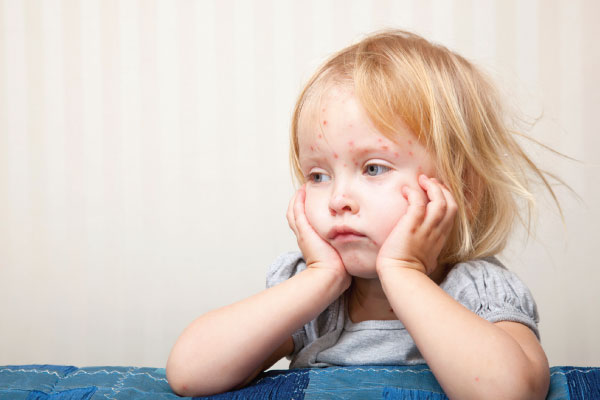This month Dr Jinan Harith Darwish brings light to an illness that affects kids all over the globe. Understand how to recognise and deal with it.
Chickenpox vaccination has been part of the American childhood immunisation schedule for some time. Since they included the chickenpox vaccine as part of their routine childhood vaccinations, hospitalisations and deaths, due to chicken pox, have reduced by 80-90 per cent. Our immunisation schedule in Bahrain does not currently recommend routine childhood vaccination against chickenpox.
What is chickenpox?
Chickenpox is a highly contagious disease mainly of children under 10 years old, though it may occur at any age. It is caused by the virus varicella-zoster. The disease is considered a mild and harmless infection of childhood to the point that in some regions of the world parents hold “chickenpox parties” where their child’s friends are invited to contract chickenpox. In reality, however, this “harmless” infection can be much more serious than most people realise.
When do outbreaks occur?
Chickenpox outbreaks often follow a seasonal pattern with the most common months being from March to May.
Is chickenpox infectious?
A person with chickenpox is very infectious from two days before the rash first appears until all the spots have crusted over, commonly about five days after onset of the rash. The virus spreads in the air from person to person and if you have not already had chickenpox, you stand a good chance of catching it if you are in the same room as someone with chickenpox for more than 15 minutes or you have any face-to-face contact with someone with chickenpox such as a conversation. It takes between seven and 21 days, most commonly 10-14 days, to develop symptoms after catching the virus (the incubation period). Around 90 per cent of people who have not had chickenpox will contract it when in contact with a contagious person.
What are the complications of chickenpox?
Serious complications of chickenpox infection include bacterial infections of the skin, pneumonia which may be fatal, inflammation of the brain (encephalitis), transient arthritis, blood stream infections (sepsis) and even death. Women who have never had chickenpox and contract it during pregnancy, can pass the infection to the developing baby, which can lead to foetal abnormalities. Newborns, in particular, are at risk of developing severe infection.
How can we prevent this disease?
The varicella vaccine was first created in 1974, and has been safely used in many countries, including the US, Canada, Japan and Germany since the 1980s. It can be given to children from nine months of age, as two separate injections, six weeks apart. If someone is unsure whether or not they have had chickenpox, they can still have the vaccine. The recommended two doses of the vaccine are estimated to offer 98 per cent protection from the disease in children and 75 per cent protection in adolescents and adults.
Around 15-20 per cent of healthy vaccinated children will develop breakthrough varicella. This is a much milder chickenpox infection, without fever and with fewer skin lesions, occurring about 42 days after vaccination. Even if the vaccine is given within five days after exposure, evidence shows it can still prevent or reduce the severity of the symptoms. g





































